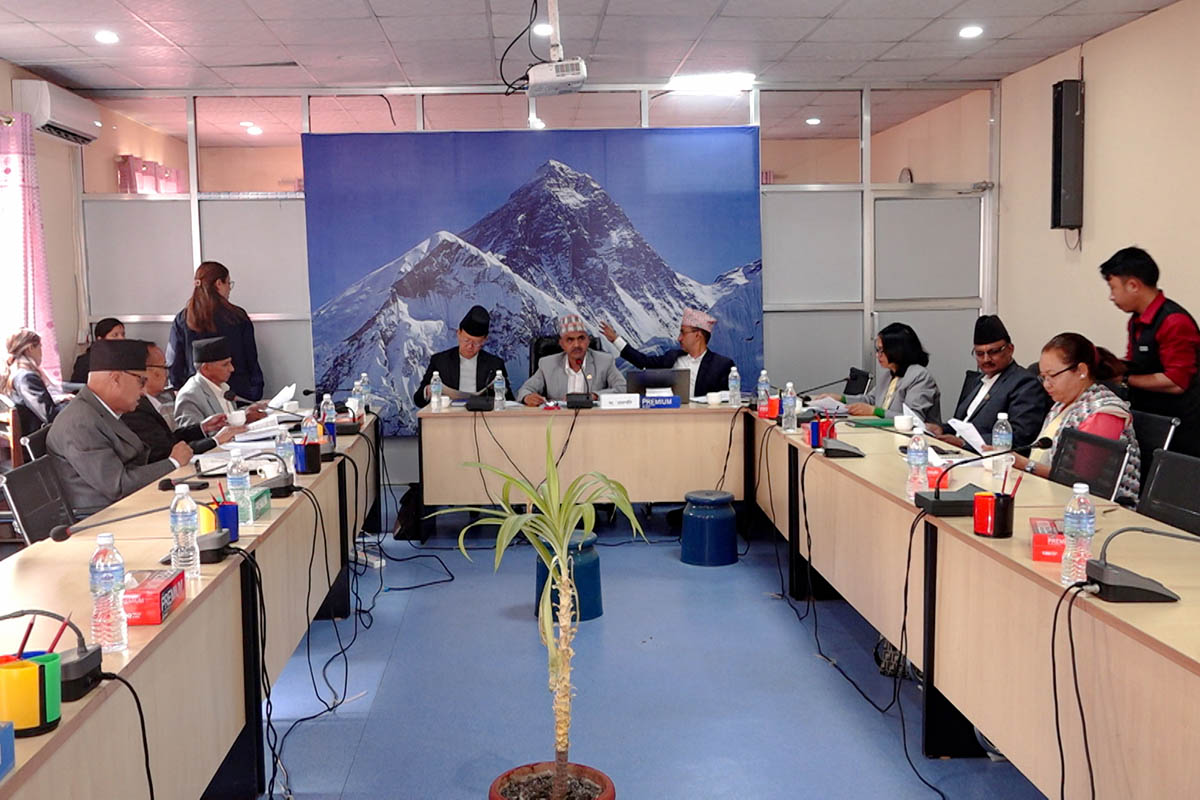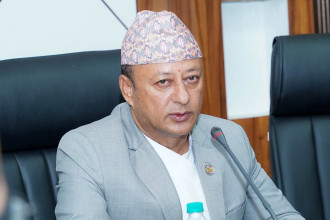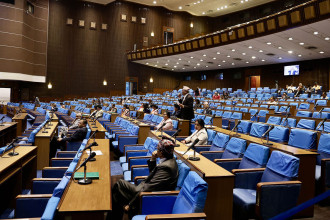
KATHMANDU: The House of Representatives' Committee on Monitoring and Evaluation of the Implementation of the Directive Principles, Policies and Obligations of the State has advised the government to propose new policies and programmes for the fiscal year 2025/26, aimed at setting a clear direction for the nation and gaining trust from civic perspectives.
In a meeting held today, the Committee emphasised that the directive principles, policies, and obligations of the State are fundamental guidelines for governance. It urged the government to ensure these principles are reflected in reliable policies and programmes addressed through the budget.
Committee Chairperson Thakur Prasad Gaire highlighted that Part 4 of the Constitution outlines the Directive Principles, Policies, and Responsibilities of the State as governance frameworks. He stated that the State is responsible for mobilising resources to implement them and stressed the importance of effective enforcement of these constitutional provisions.
The Committee pointed to the urgency of workforce development for modern infrastructure operations, such as tunnel ways, cable cars, and electric railways. It advised the government to prioritise infrastructure development using home-based resources and the expertise of returning migrant workers.
The government was further urged to incorporate guiding principles and programmes addressing sustainable development goals and climate change. It recommended universities develop curricula for producing skilled workers in industries such as iron, steel, and copper, alongside solid planning for mineral excavation.
The Committee advocated amending the Forest Act and the National Parks Act to remove obstacles to the proper utilisation of forest products. Policies promoting the scientific use of forests, domestic consumption over imports, and advancing reforestation efforts were recommended. The forest sector was identified as a potential primary source for domestic employment, with policies requiring a review of tree-felling provisions and their impact on environmental and developmental objectives.
The government was encouraged to introduce policies fostering environmental and tourism-friendly development. Self-reliance in one or two key agricultural crops was emphasised, alongside protecting domestic agricultural produce through higher import taxes. Ensuring all cultivable land is utilised effectively was highlighted.
Committee Chairperson Gaire called for prioritising reservoir-based hydropower projects, offering them greater tax and tariff benefits compared to run-of-the-river projects. Public-private partnerships were proposed as the preferred model for hydropower development.
Education reforms were identified as crucial, with policies suggested to make education scientific, practical, skill-oriented, and employment-driven. The Committee urged the government to issue a new Education Act promptly, resolve issues faced by school teachers, and address challenges faced by universities to create an independent working environment.
A concrete timetable was recommended for completing national pride projects, limiting their designation to initiatives of national importance. The Committee advised completing ongoing projects before initiating new ones.
Policies focused on employment generation were emphasised, including establishing new industries, reviving failing ones, and mandating the use of materials produced by domestic industries within government bodies.
Finally, the Committee stressed that all policies and programmes must align with the State’s directive principles and responsibilities, ensuring governance that adheres to constitutional obligations and national goals.
By RSS






